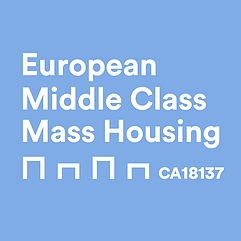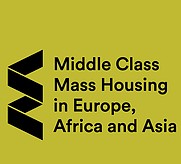Architecture Television (ARCH-TV): The televised dimension of architectural action, from Portugal’s first broadcast to the EU digital decade
Investigadora Responsável
What role can architects play in defining the public space of the future digital world? Looking back to the Carnation Revolution, when poor living conditions in Portugal became a matter of urgent political discussion, several architects turned to Television (TV) to amplify their message and take immediate action in the emerging democratic public space. Becoming field broadcasters themselves, architects could be seen on screen giving visibility to major urban problems, interacting with the population and calling for political change, thus building a televised dimension of architectural action closely linked to societal challenges. An open, democratic and sustainable Europe fit for the digital age is one of the EU’s top priorities for 2030, especially reinforced after the outbreak of COVID-19, where digital technologies were crucial in bringing people together at a time of social distance, as a means of providing remote forms of socialization, education and work. The EU Declaration aims to put people at the centre of Europe’s digital transformation using technologies that contribute to a fair and inclusive society that encourages participation in the Digital Public Space (DPS). Based on these assumptions, this research (ARCH-TV) will explore the legacy of Portuguese Public TV (RTP) to identify future opportunities in digital transformation for distance learning and cultural consumption, while aiming to contribute to a larger conversation on how DPS can be actively constructed and defined through broadcasting of architectural knowledge, history and culture, connecting architects with society at large on current issues. ARCH-TV proposes a research development in 3 stages: 1) Historical analysis of the participation of Portuguese architects in RTP, in the course of its institutional evolution: From instrument of propaganda for the New State since its first broadcast in 1956, to laboratory of experimentation for the growing democracy after ’74, to object of ratings with T...
Informação do Projeto
2024-09-01
2030-08-31
Parceiros do Projeto
- DINAMIA'CET-Iscte (CT) - Líder
European Middle Class Mass Housing
Investigadora
The main challenge of this Cost Action is to create a transnational network that gathers European researchers carrying studies on Middle-Class Mass Housing (MCMH) built in Europe since the 1950s. This network will allow the development new scientific approaches by discussing, testing and assessing case studies and their different methodologies and perspectives. MCMH has been generally underestimated in urban and architectural studies and there is still a lack of comparative analysis and global perspectives. The number of transnational publications and scientific meetings has also been scarce. By crossing different approaches focus on Architecture, Urbanism, Planning, Public Policies, History, Sociology new concepts and methodologies will arise. Therefore, the Action aims to produce a wider understanding of MCMH sprawl, deepening on-going researches and focusing on the existing case studies. The current methodologies, surveys, catalogue and contextualization allow an initial mapping of relevant case studies, their diverse degrees of resilience and how they have been adapted to current (urban and social) conditions. It is intended to develop the knowledge of the interaction between spatial forms, behaviours and satisfaction and to combine methodologies of architectural and social analyses. The Action will be developed by three Working Groups, coordinated by a Core Group: Documenting the MCMH; Development of a specific set of (new) concepts for MCMH analyses; Leverage contemporary architecture interventions and Public Policies. In the Action will be involved researchers related to Mass Housing, MCMH Architecture and Urbanism, Planning and Public Policies, Sociological studies, Architecture History and Modern Heritage.
Informação do Projeto
2019-04-03
2023-10-02
Parceiros do Projeto
- DINAMIA'CET-Iscte (CT) - Líder
Conjuntos Habitacionais para a Classe Média na Europa, África e Ásia
Investigadora
Propõe-se uma análise comparada sobre o alojamento em massa da Classe Média (MCMH) na Europa, África e Ásia, introduzindo novos casos de estudo de modo a aprofundar investigações existentes, a partir de metodologias já testadas: catalogação e contextualização de conjuntos habitacionais construídos entre os anos de 1950/80 em Itália, Bélgica, Portugal, Angola e China. Pretende-se identificar os modelos habitacional e urbano e mapear as alterações surgidas após 50 anos de uso, para entender como se adaptaram às condições actuais (urbanas e sociais), apoiando acções futuras. Os casos de estudo localizam-se em Milão, Antuérpia, Lisboa, Luanda e Macau, em periferias que ajudaram a consolidar e foram selecionados pela: 1) escala; 2) número de habitantes; 3) acessibilidade; 4) qualidade urbana e arquitectónica. Partindo-se de um conhecimento em formação propõe-se agora uma leitura comparada que reflicta sobre a expansão das cidades no contexto do crescimento demográfico após a II Guerra Mundial. Irá analisar-se o impacto dos modelos residenciais desenvolvidos em contextos europeus e a sua transposição para antigos territórios coloniais (África e Ásia). Os estudos que analisam o panorama habitacional transcontinental sob uma perspectiva arquitectónica e sociológica estão limitados a alguns casos regionais, não assegurando uma visão global que inclua: 1) a descrição histórica da evolução física da casa, do edifício e do bairro; 2) levantamento e análise do perfil dos habitantes. Irá avaliar-se a capacidade de resiliência destes bairros, testando e propondo formas de prolongar a sua vida útil, através da actualização dos esquemas funcionais dos apartamentos (adequando-os às novas exigências), renovação de infraestruturas sanitárias e sistemas construtivos e através do conhecimento do perfil de ocupação. Dar-se-á enfase à forma de promoção (pública ou privada) e ao seu efeito sobre o perfil do habitante actual (pioneiro, recente, imigrante). Os bairros estudados caracterizam-s...

 English
English



